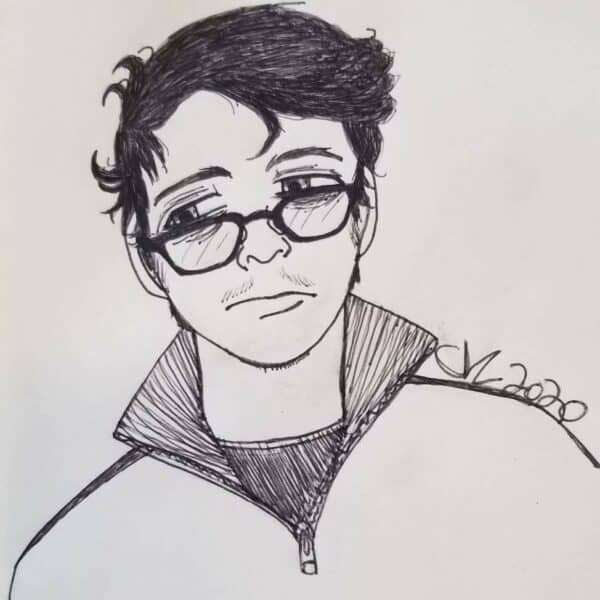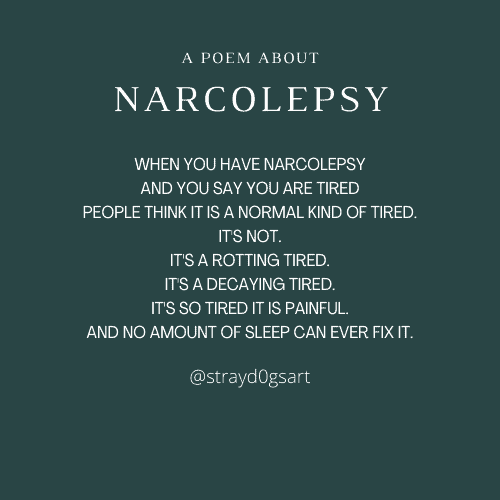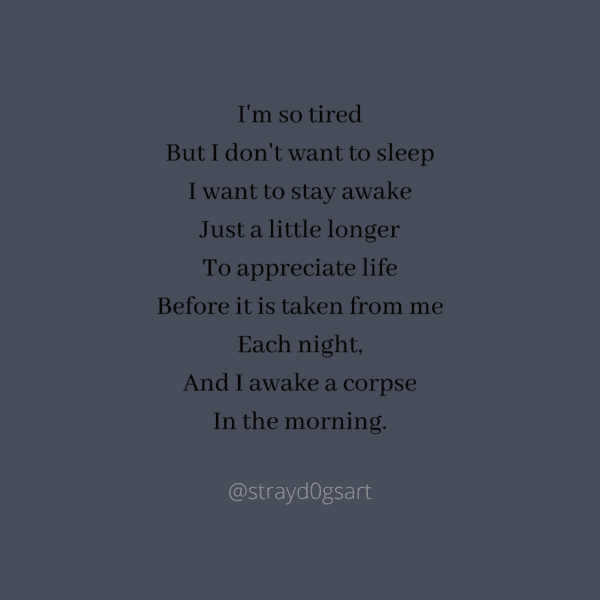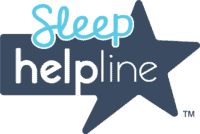Chris: Celebrating 2022 LGBTQ+ Pride Month Part 2
June is LGBTQ+ Pride Month! Project Sleep is proud to highlight insights from LGBTQ+ members of our community throughout the month of June.

Hi Chris! Please tell us about yourself.
My name is Christopher and I am a disabled trans artist, but I go by Chris. I use he/him pronouns and came out as transgender when I was 16. I am now 25, and it has been a long journey that is not quite done yet as I look forward to further medical transition. I have a common-law partner of eight years. I love anime, video games, writing, drawing, and reading. I LOVE dogs and am looking forward to owning one with my partner in the future. Something important about me is that I have struggled with mental health challenges, so a lot of my art and poetry is in relation to those challenges. In particular, my sleep disorder lowered my mood quite a bit.
What is your sleep disorder? At what age were you diagnosed?
I was diagnosed with narcolepsy around my second year of university. All my life I had trouble with staying awake, and everything I did took so much energy that I did not have. I would fall asleep in public quite a bit, as well as class. I often fell asleep on the bus and missed my stop. I remember having a lecture in the morning, and I would get 8+ hours of sleep previous to the lecture, but when I tried to go to that lecture I would keep falling asleep. I tried a lot of things to keep awake, but my notes would trail off and I would wake up at the end because there was a lot of movement. I assumed I had sleep apnea, so I went to my family doctor and asked for a sleep study. They did a nighttime one as well as a daytime one. The nighttime one did not show sleep apnea, but the daytime one showed I had narcolepsy. It was a shock to everyone, and I was put on medication for it. Years since have been me and my support system trying to find a medication that works.
In your experience, are there similarities and/or differences between living with a sleep disorder and identifying as LGBTQ+?
Some similarities I see between having a sleep disorder and identifying as LGBTQ+ are that life can be difficult due to this, people may have judgments about you, and you may be othered amongst the general population. My diagnosis of narcolepsy has left me disabled, and my identity has led to many challenges in life (such as discrimination). People may not be educated on narcolepsy or my identity, and therefore may make judgments about me. A lot of the time when I tell my professors I have narcolepsy they say they don’t know what that is, so I explain I fall asleep without wanting to. When I say it like that, it doesn’t sound that serious.

Growing up I was told I was lazy for sleeping all the time, and I didn’t have much energy for things. I was told I was depressing to be around, because often when my energy was low I felt low in mood. In my experience of being trans, judgment is a part of my life, and there are many not willing to try to understand my identity. With narcolepsy in particular, I feel very isolated from others, because of how rare it is. I think I am lacking social connection with other people with narcolepsy. Being trans, I don’t feel as isolated because I have a great support system and friends with similar identities, but when I am not around them I feel isolated once more.
What does Pride Month mean to you?
Pride Month is great, to me it means celebrating all the identities in the LGBTQ+ community. Some are straight-forward, some are not. Some can be clearly defined, others cannot. Some are static, others change throughout the person’s lifespan. Everyone experiences their identity differently. I also think Pride Month is about acceptance, and finding our place in the world. Pride Month can also be a time for allies to demonstrate their support. During Pride Month you can connect with peers to celebrate, or make new connections. Pride Month is for sure a very happy month for me.
What advice would you give someone who is earlier in their journey in the sleep and/or LGBTQ+ community?

“Morning Corpse” by Chris
My advice for those early in their journey with struggling with sleep is to get a sleep study done. A diagnosis is so important. I like to advise people to not just get the nighttime study done, but the daytime as well. Narcolepsy in particular needs a daytime study. If you are feeling tired all of the time, and it is affecting you in any negative way, you deserve to get help and to find answers. I also found it helpful to connect with others online who are struggling. Similar to my advice for struggling with sleep, my advice for those questioning or in early identification as LGBTQ+ is to find a support system. A local support system is best, but online works as well. Don’t be afraid to explore different parts of your identity, and try not to compare your journey to others’. Find/create places where you feel safe.
Is there anything else you’d like to share with the sleep community?
My last thoughts: life is not over after being diagnosed with a sleep disorder. Your situation can get better. You may have to change your expectations for yourself, and may have to explain to others that you need more support, but you are still a worthy human being. Schools have accommodations for you, and workplaces should as well. You will get through your challenges, just as you have had to all this time.
Thank you, Chris, for sharing your voice! Find Chris’s art on Instagram: @strayd0gsart.
To join the Wake Up Narcolepsy LGBTQIA+ online support group, make an account on HeyPeers.com and follow Wake Up Narcolepsy. From there, you’ll be able to see all of the groups and register. Living with Narcolepsy – LGBTQIA+ meets on Fridays at 1pm (PT).





